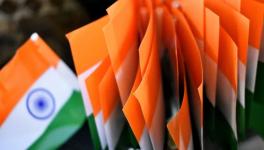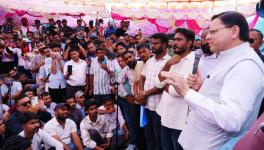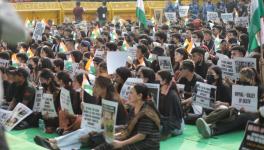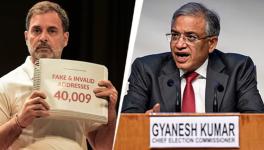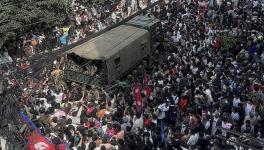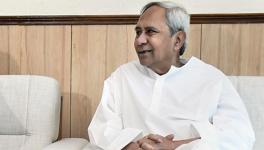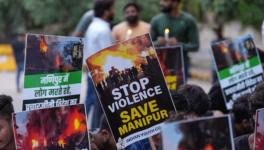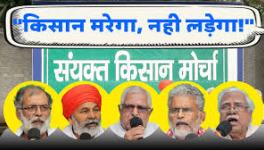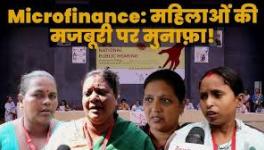The Wrong Way to Do Manipuri Nationalism
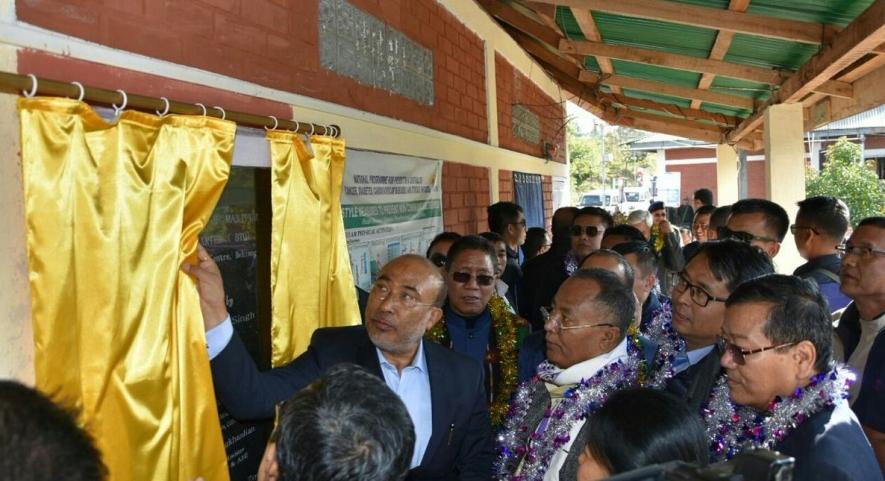
The BJP led govt. in Manipur seems to be tying itself in knots trying to chart a path of gaining quick popularity among the diverse societies of North-East and their complex histories. On December 19, the Chief Minister of Manipur N. Biren Singh declared Behiang Village to be the gateway for a new route for trade with Myanmar, while taking part in the Zou Gal Centenary Commemoration. Earlier, he had laid the foundation stone for the Maharaja Chandrakirti Memorial Park at Chivu village two kilometres away. To a person familiar with the history of Manipur, these constitute contradictory actions.
The ‘Zou Gal’ was a part of a larger struggle against British rule, commonly referred to by colonial sources as the Anglo-Kuki War. This was an uprising in 1917 by the Kuki people who live in the areas between southern Manipur and the Chittagong Hill Tracts (CHT) of Bangladesh. The Zou Gal was an uprising by the Zou people, part of the larger Kuki family, against the British forcefully recruiting Zou men to serve in the Labour Corps during the First World War. The Anglo-Kuki War was sparked off, to an extent, by Bengali Nationalists who were opposed to the Partition of Bengal in 1905. They had met with Kuki leaders and encouraged them to rebel against the British.
Maharaja Chandrakirti on the other hand played a rather different role in relation to the Zou people. Between the years of 1871 and 1872, the British Government of India launched the punitive ‘Lushai Expedition’ against the Chin-Kuki-Zo people in the Lushai Hills, present day Mizoram. Its purpose was to ‘pacify’ the region after raids carried out by the hill tribes against British establishments in the Cachar area of Assam. The British sent two military columns, one via the CHT and the other via Manipur. Maharaja Chandrakirti of Manipur had aided the British by sending 2000 Meitei soldiers to join the British forces. At that time Behiang Village in Churachandpur was ruled by Go Khaw Thang, a Zou Chief. The British force defeated the rebellious people at Behiang and seized Go Khaw Thang, following which he was executed by Chandrakirti’s soldiers.
So, celebrating a British collaborator king on the same day as celebrating local people who fought against the British – this is what the BJP ended up with.
The royal dynasties of Manipur have always been Meitei, the dominant population in Manipur and reside mostly in the Imphal Valley. The surrounding hills in Manipur are inhabited by various ‘tribes’. The northern hills are predominantly populated by Naga tribes, whereas the southern hills are populated mostly by the Chin, Kuki, Zomi and Mizo tribes. The Meitei community became Vaishnavite Hindus during the reign of Pamheiba in 1710, whereas the ‘tribes’ are mostly Christian due to proselytising by Christian missionaries during British rule. There is a movement within the Meitei community to return to their pre-Hindu religion of Sanamahism, however, they mostly still remain Hindus.
N. Biren Singh was elected on a BJP ticket in 2017. He inherited a Manipur that was still reeling from tensions exacerbated by his predecessor Okram Ibobi Singh from the Congress. Ibobi Singh’s government passed three Bills in 2015: Protection of Manipur People Bill, the Manipur Land Revenue and Land Reforms (Seventh Amendment) Bill, and the Manipur Shops and Establishments (Second Amendment) Bill. These Bills saw hill-valley tensions at their highest in recent years. The hill people saw the Bills as attempts to infringe upon their traditional land rights in favour of the dominant Meiteis. The creation of seven new districts in 2016 saw the hills divided between Nagas and Kukis. The Meitei community at present is apprehensive about the Framework Agreement between the Government of India and the NSCN(IM).
The present Government in Manipur is a coalition between the BJP, Naga People’s Front (NPF), and the National People’s Party (NPP). BJP had secured five less seats than the Congress in the 2012 election but managed to cobble together a coalition. Biren Singh has consistently appealed to a broad Manipuri nationalism in an attempt to bridge the hill-valley schism.
Commemorating the Zou Gal by laying a foundation stone for a memorial park in honour of a King on whose orders a Zou Chief was killed is a strange way to bridge the hills-valley divide. It is also strange that people who directly or indirectly collaborated with the British are icons in the eyes of the BJP. Whatever be the case, the BJP’s short sighted and politically expedient policies seem to be created from a very bizarre and superficial understanding of the region.
Get the latest reports & analysis with people's perspective on Protests, movements & deep analytical videos, discussions of the current affairs in your Telegram app. Subscribe to NewsClick's Telegram channel & get Real-Time updates on stories, as they get published on our website.









